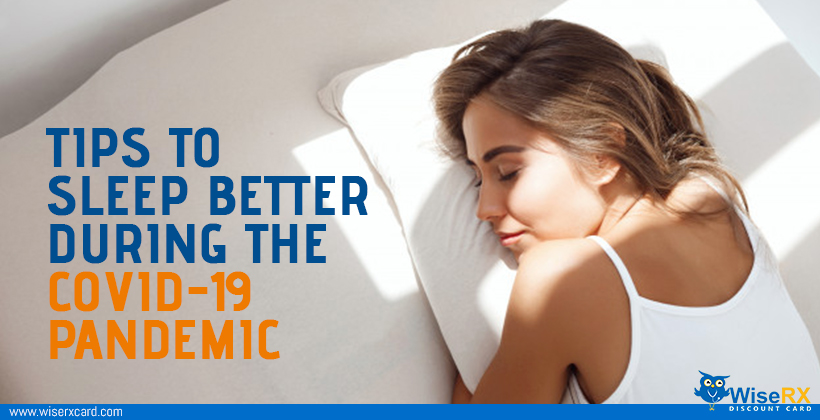
Tips To Sleep Better During The COVID-19 Pandemic
In a few months, there have been reports about people complaining about their sleep cycle.
Due to life-altering changes stemming from the COVID-19 pandemic, most of the people are complaining about sleeping issues. The pandemic’s stress and anxiety are making it difficult for people to get a sound sleep.
Stress and sleep are connected – sleep can affect stress and vice versa.
Moreover, increased exposure to blue light from screens can impair sleep. The blue light from screens decreases melatonin in human bodies, fluctuating our cardiac rhythm, and affecting our sleeping patterns.
According to Dr. Aneesa Das, a sleep expert at The Ohio State University Wexner Medical Center, “Many folks have forgotten about good sleep hygiene during the pandemic and are sleeping at all hours.”
What can we do to sleep better during the COVID-19 pandemic? Let’s find out in this blog!
Exercise
Exercise can help you get restful sleep if you’re tossing and turning during the COVID-19 outbreak.
Just like diet and exercise, sleep is also necessary to stay fit. All three factors influence one another. According to the experts, if you’re dealing with sleep issues, exercise can help you get quicker, deeper, and more consolidated sleep. Exercise stimulates something called adenosine, which builds sleep pressure.
The right time to do exercise
It’s best to do moderate aerobic exercise for about 30-45 minutes every day to get proper sleep. However, ensure to do it approximately 3-6 hours before bedtime. Exercising shortly before going to bed can disturb your sleep cycle.
According to Bill Fish, a certified sleep coach and managing editor of SleepFoundation.org, “It can be a cause of insomnia for many.”
Make sure that your body is completely relaxed at least 45 minutes before going to bed.
Right exercises to do during the COVID-19 pandemic
According to the experts, “Some forms of exercise are better than others when it comes to better sleep.” Here are some exercises that you can do to sleep better:
- From walking to running to high-intensity workouts, cardio promotes better sleep and treat depression.
- You can also walk around your neighborhood or on a treadmill to keep your cardiovascular system healthy.
- Practicing yoga can also improve your sleep. Yoga has meditative qualities that can help you with your sleeping patterns.
Other tips to get better sleep:
- Get up at the same time and sleep at the same time. Try to limit your time in bed to 7-9 hours.
- Exercise earlier to bring your body temperature back to normal and keep your body relaxed before bedtime. Don’t exercise anywhere from 30 minutes to 3 hours before going to bed.
- If you’re working out in the morning, do exercise that increases your heart rate and breaks a sweat. Daylight is good for sleep cycles.
- Perform yoga or meditation if you’re working out in the evening. Yoga relaxes your muscles and helps with deep sleep.
- Pray, meditate, or take a warm bath to calm your body at least an hour before bedtime.
- Avoid heavy meals or alcohol 2 to 4 hours before bedtime.
- Minimize your screen time post evening and avoid screens at least an hour before going to bed.
- Keep your bedroom dark, quiet, and comfortable.
- Avoid long naps during the daytime.
If you’re having trouble getting proper sleep, practicing these tips will help you get better and restful sleep during a chaotic time.
If you want more updates on COVID-19, stay tuned to the WiseRX® prescription discount card blog!


